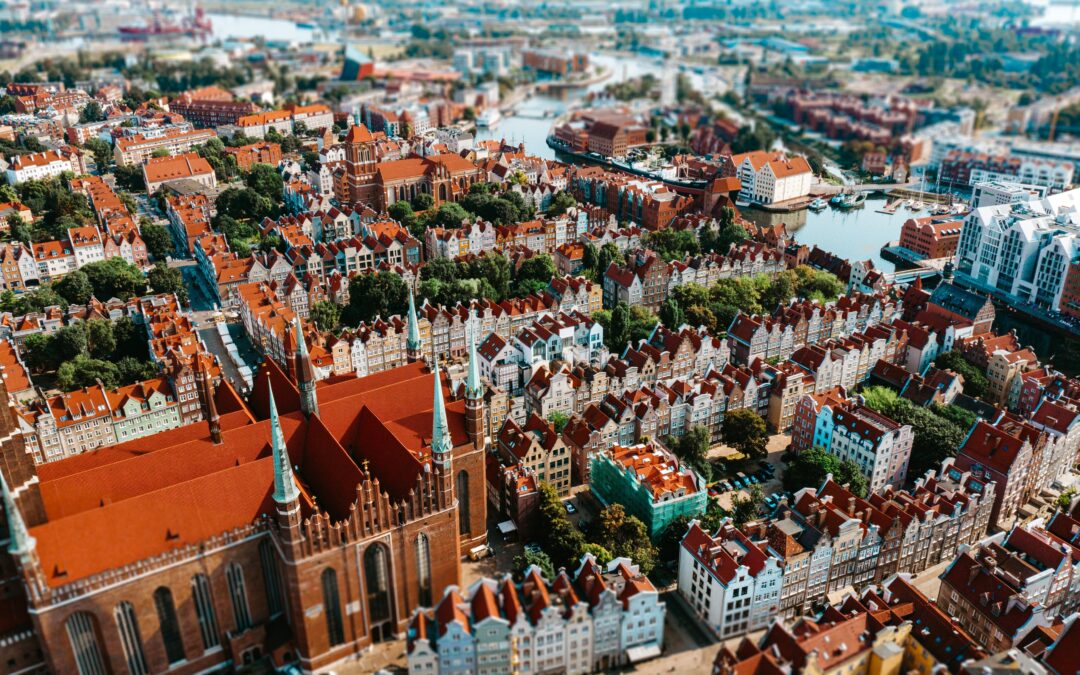The Polish city of Gdańsk has been rated as Europe’s joint fourth-best city to live in. Another, Białystok, has Europe’s highest proportion of residents saying that their quality of life has improved in the last five years.
The findings come from the European Commission’s Report on the Quality of Life in European Cities, which examined 83 cities and conurbations in 36 countries, both in the European Union and outside it.
In the report’s primary ranking – the proportion of people who declare themselves satisfied with life in their city – Gdańsk was tied in fourth on 95% with Leipzig in Germany. The table was topped by Zürich (97%) in Switzerland, Copenhagen in Denmark and Groningen in the Netherlands (both 96%).
At the other end of the scale, Palermo in Italy, where only 62% of residents are satisfied with life, came bottom of the ranking. It was followed by the Greek capital Athens, Istanbul in Turkey (both 65%), Tirana in Albania and another Italian city, Naples (both 66%).
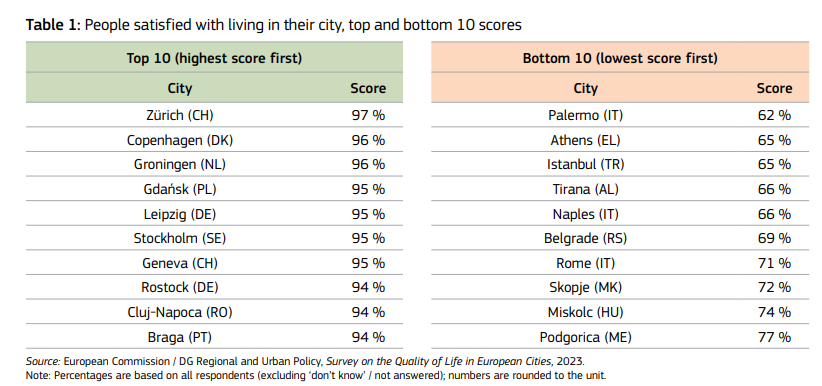
Gdańsk’s score this year was similar to the one it achieved the only other time the study was conducted, in 2020, when 97% of its residents declared themselves satisfied with their quality of life.
The port city, on Poland’s northern Baltic coast, is renowned for its stunning architecture, rich history, green spaces and surrounding natural environment, including the area’s many sandy beaches.
Gdańsk has also become an attractive destination for immigrants in recent years, like many other Polish cities. In the new EU study, 87% of residents said Gdańsk is a good place for immigrants to live, which was the joint fifth highest figure in Europe.
However, Białstok, where only 54% said the city was a good place for immigrants, was among the bottom ten in the report.
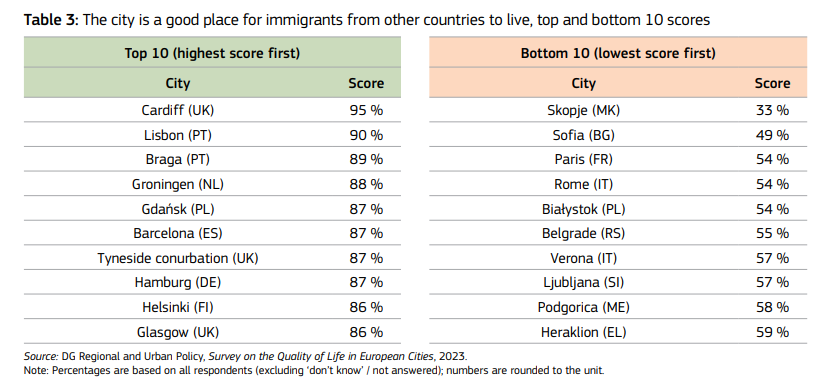
The European Commission also asked residents of cities if they felt life there had improved over the last five years. Here, Białstok, where 62% said that things had improved, came first in Europe while Gdańsk (60%) was second.
The only two other Polish cities included in the study, Kraków (53%) and Warsaw (46%), were also among the top 10 in Europe, alongside Cluj-Napoca in Romania (59%), Vilnius in Lithuania (56%), Ostrava in the Czech Republic (55%), Tallinn in Estonia (53%) Sofia in Bulgaria (52%), and Antalya in Turkey (45%).
“It is encouraging to read that quality of life…in eastern EU cities continues to catch up with the average,” wrote European Commissioner for Cohesion and Reforms Elisa Ferreira in an introduction to the report.
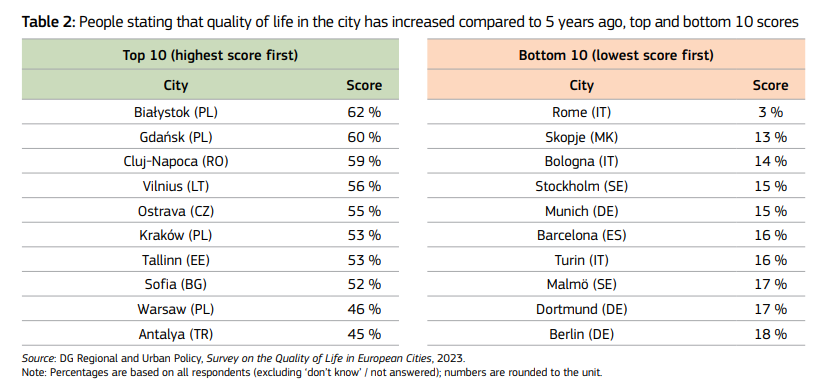
The report also, however, found large differences in Poland regarding people’s opinions on whether their city is a good place for LGBTIQ people to live.
Here Białystok was among the bottom 10 cities in Europe, with 35% of residents saying it was a good place for LGBTIQ people. Only Piatra Neamţ in Romania (35%), Turkey’s Ankara (35%), Istanbul (34%) and Diyarbakir (27%), and Tirana in Albania (29%) had equal or lower results.
By contrast, Gdańsk (85%) and Kraków (79%) had relatively high proportions of residents saying the cities were good places for LGBTIQ people, and the report noted that the gap between them and Białystok was the largest it had found within a country. In Warsaw the figure was 69%.
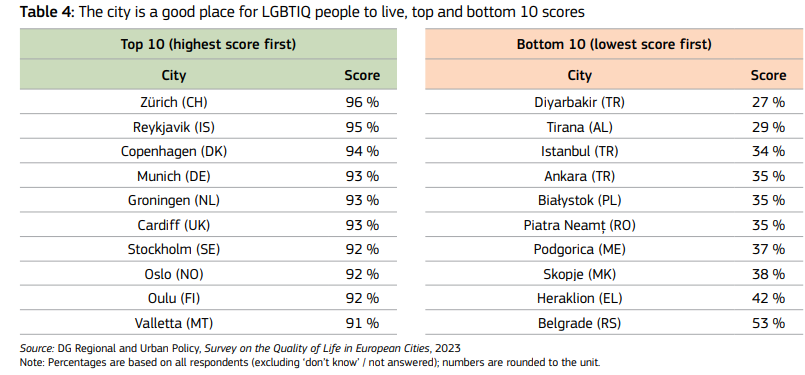
In Poland, the largest cities are generally seen as more welcoming of LGBT people. Many, including Warsaw, Kraków and Gdańsk, offer municipal support programmes for sexual and gender minorities.
However, Białystok, with a population under 300,000, is smaller than its counterparts and is also located in the more conservative east of the country. In 2019, the city’s first-ever LGBT pride march was met with violent protests from far-right groups.
The European Commission’s report also found large contrasts within Poland regarding how residents rate the quality of their air. Kraków – a city in Poland’s smoggy south – was among the bottom ten in Europe while Białystok, in the less polluted northeast of the country, was in the top ten.
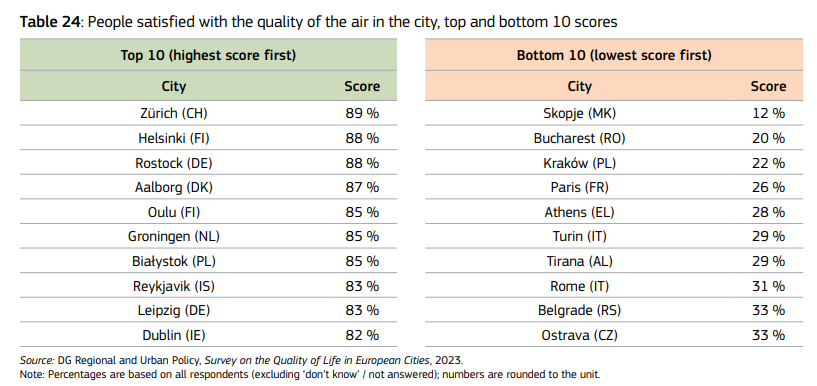
The new report comes shortly after separate findings by Eurostat showing that Poland as a whole has the EU’s joint second highest level of satisfaction with life among its residents.
Eurostat also found that among the youngest age group, 16 to 29, Poland had the highest level of satisfaction among all member states.
Last year, news website Business Insider Polska compiled its own ranking of the best Polish cities to live in. Poznań and Katowice were ranked as the best while Gdańsk was only in 11th place and Białystok was last among the 15 cities included.
Poland has the EU's second-highest level of satisfaction with life among residents, new @EU_Eurostat data show.
Among the youngest age group, Poland has the highest level of satisfaction https://t.co/fCIM2GQv4L
— Notes from Poland 🇵🇱 (@notesfrompoland) January 16, 2024

Notes from Poland is run by a small editorial team and published by an independent, non-profit foundation that is funded through donations from our readers. We cannot do what we do without your support.

Daniel Tilles is editor-in-chief of Notes from Poland. He has written on Polish affairs for a wide range of publications, including Foreign Policy, POLITICO Europe, EUobserver and Dziennik Gazeta Prawna.
